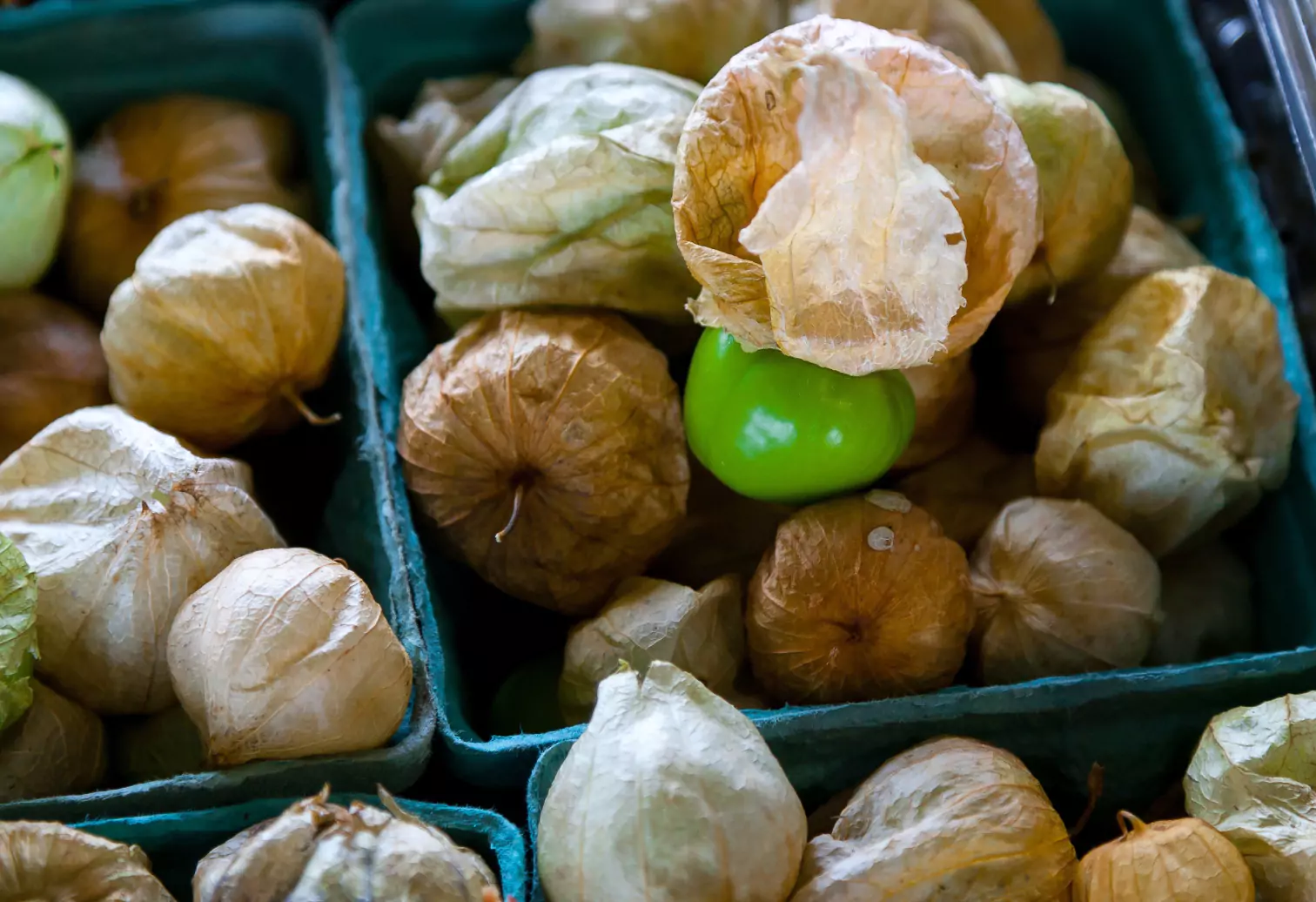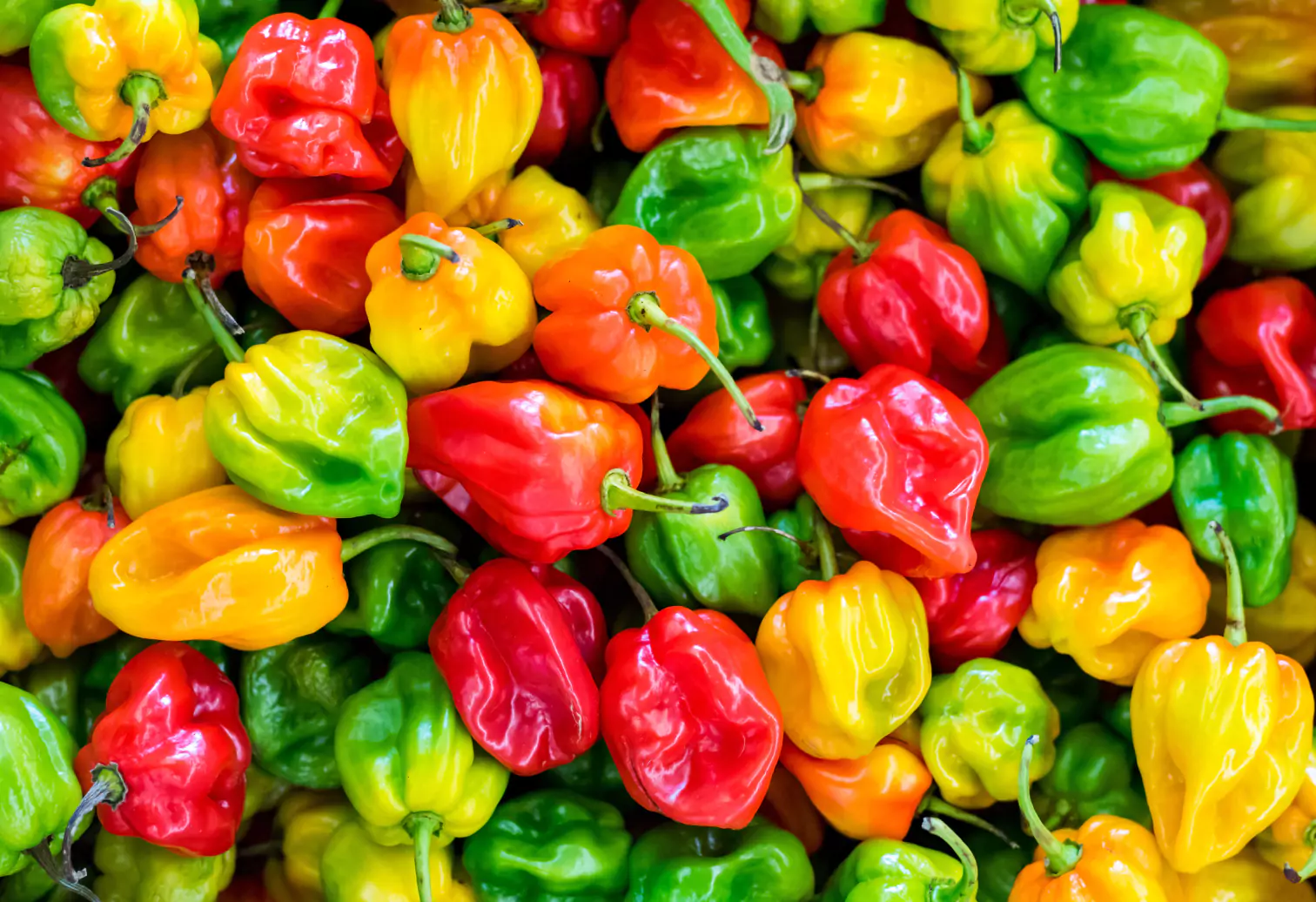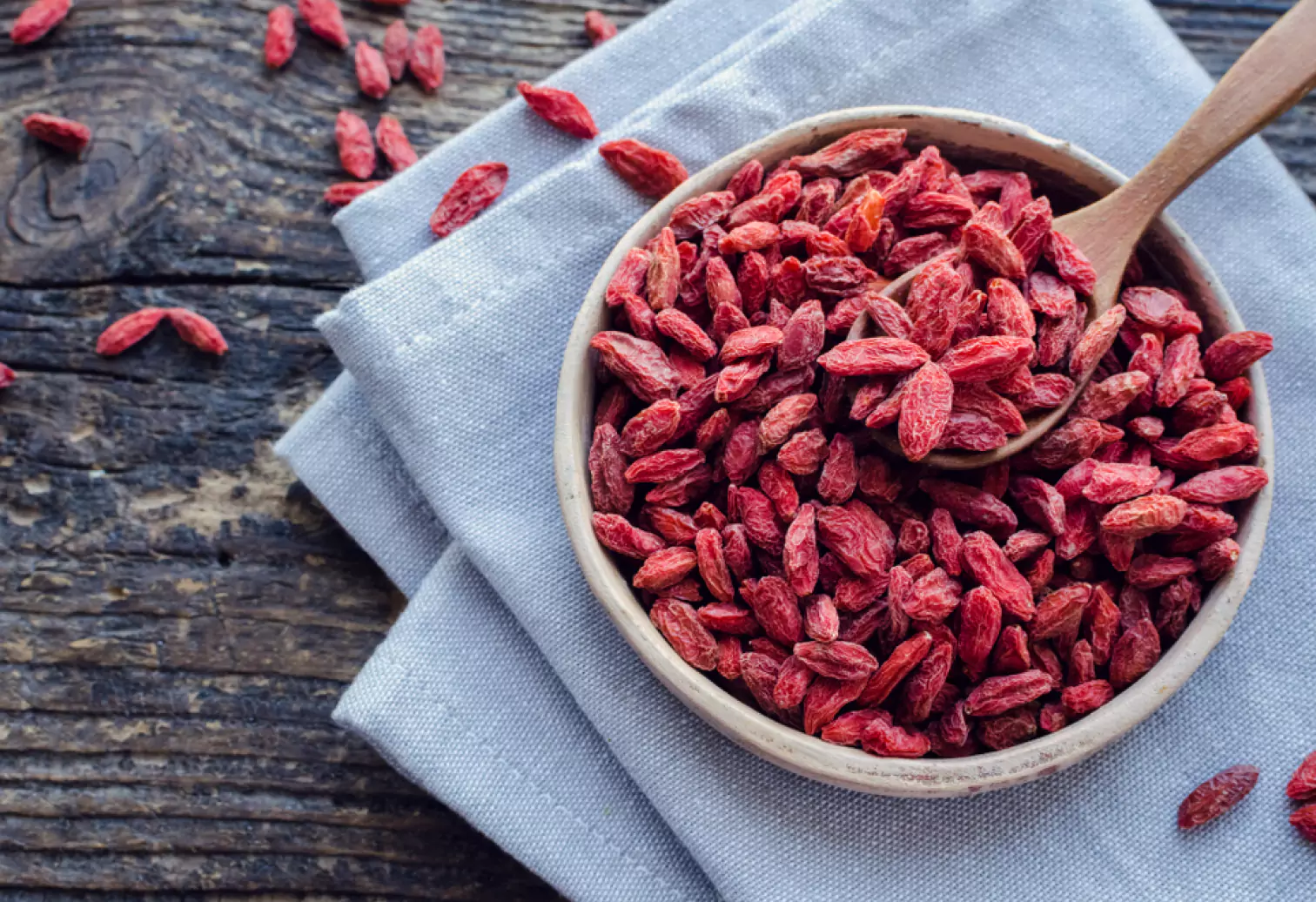Nightshade Vegetables: Good or Bad? Breaking the Nightshade Myth

Key Takeaways
Rich sources of nutrients or triggers for inflammatory bowel disease? You've likely heard of nightshade vegetables, whether you think they’re good, bad, or something in between.
They’re a hot topic in the wellness world, and the jury is still out on whether people with food sensitivity should eat them in high concentrations or if they're part of a healthy diet. And while there's not enough scientific evidence to suggest avoiding them altogether, are some nightshades worse than others? What even are nightshade vegetables? Read on to learn more.
What Are Nightshade Vegetables?

Nightshades are a group of vegetables that are part of the Solanaceae family, including everything from vegetables and herbs to fruits and weeds. Even if you’ve never heard of this term before, you’ve likely eaten edible nightshades as part of your daily dose of veggies.
This family of herbs, shrubs, and trees includes veggies and fruits like tomatoes, potatoes, sweet potatoes, eggplant, peppers, tamarillos, and cape gooseberries. While all nightshades share some common characteristics, there are also some notable differences between them.
As nightshade vegetables, tomatoes, peppers, and eggplant are related to some potentially harmful plants. But what gives them such a bad rep? Are there more than one ‘deadly nightshade’ to avoid? Much of the reasoning for the bad reputation that nightshade vegetables have is the alkaloid content in these plants.
Alkaloid molecules are found in all nightshade vegetables and play various essential roles in the plants' growth and development. An example of this is the tobacco plant, which can be harmful to us. That being said all nightshade vegetables contain alkaloid molecules, they are essential in various roles in the plants' growth and development. But that doesn’t necessarily mean you should avoid all nightshade vegetables.
So, what's the truth about nightshades? Well, as with any group of food, nightshades are not all created equal. Not to mention, everyone reacts differently to specific foods. So while some of us may find nightshades to be harmful in larger quantities (more on that later), we can't villanize an entire group of vegetables.
Since there’s no one-size-fits-all diet, it’s best to consult with a registered dietitian or nutritionist to determine whether they will work well for your body. In the meantime, try some of our favorite nightshades, and learn more about how they interact with our system.
Try Our Favorite Nightshade Vegetables
There are many nightshade vegetables, but some of our favorites include tomatoes, peppers, and eggplants. These vegetables are delicious and nutritious, and they are a great source of antioxidants, vitamins, and minerals.
You can use nightshade vegetables in various dishes, from appetizers to main courses to desserts. So if you're looking for something new to add to your menu, consider giving one of these nightshade vegetables a try:
Bell Peppers

Red, yellow, green... bell peppers are colorful, crunchy nightshade vegetables that are a great source of vitamin C. Eaten raw or cooked, bell peppers are also low in calories and fat.
Tomatoes

Tomatoes are nutrient-rich fruit that are low in calories and a good source of fiber. They may also improve heart health, reduce inflammation, and protect against cancer, and are a good source of vitamin C, fiber, potassium, and lycopene. Lycopene is an antioxidant that may help protect against certain types of cancer, something that ongoing research is still exploring.
Chili Peppers

Chili peppers are a type of pepper typically red or green in color. They have many health benefits due to their antioxidant and vitamin content. You can add them to a variety of dishes or eat them independently.
They can also be dried and ground into chili powder. Recent studies show that eating chili peppers may help increase fat oxidation (fat burning). Spices, like chili powder, can have different nutrients that may offer various health benefits, so adding them to your food may help improve overall wellness.
Eggplant

Eggplants are also low in calories and high in fiber, making them a good choice for weight loss or weight management plans. They're also a good source of vitamin C and magnesium. Some research has indicated that consuming high fiber veggies, like eggplant, has some ties to lower blood pressure and improved heart health.
Potatoes

Potatoes are one of the most popular nightshade vegetables in the United States—and for a good reason. They’re versatile, affordable, and most importantly, healthy.
Potatoes are a great source of fiber, potassium, and vitamin C. Additionally, they’re low in calories and fat-free. They can be an excellent addition to a healthy diet. But specific preparations (like deep-frying them in oil) can reduce the health benefits and turn them into an indulgent snack.
Tomatillos

Tomatillos are a fruit often used in Mexican cuisine. While different in many ways, tomatillos and tomatoes are both nightshades and often mistaken for vegetables—but they're actually both fruit!
Unlike what many people think, they’re not just a smaller, greener type of tomato. This fruit has a tart flavor that is perfect for salsa or guacamole. They’re also a good source of vitamin C and potassium while being low in calories.
Pimentos

Pimentos, also known as cherry peppers, are a variety of red pepper often used in Spanish, Italian, and Portuguese cuisine. They're small, bright red, and have a sweet taste. Pimentos have a high vitamin A and vitamin C content.
Goji Berries

Goji berries are a type of berry grown in Asia and used in traditional medicine for centuries. Goji berries are high in antioxidants, vitamins, and minerals and have been shown to have many health benefits.
The Benefits of Nightshade Vegetables

Now that you are more familiar with some of the common nightshade vegetables and their nutrient contributions, let's dive deeper into the benefits they can provide for your diet.
They Contain Antioxidants
Antioxidants are essential for various reasons, but most notably because they scavenge free radicals in the body. Free radicals can cause damage to the body, including cell death, tissue damage, and even cancer.
Antioxidants protect cells from this damage by neutralizing the free radicals. Additionally, antioxidants are beneficial for overall health and may help to prevent disease.
There are many different antioxidants, and each has its own unique set of benefits. It’s essential to include a variety of antioxidants in your diet, and getting some nightshades into your diet can help you do this.
Some antioxidants found in nightshade vegetables are:
- Lycopene: Lycopene is commonly found in tomatoes and has been linked to a decreased risk of developing certain types of cancer.
- Capsaicin: Capsaicin is found in peppers and chilis. It is what gives them their spice and it contains powerful anti-inflammatory properties.
- Anthocyanin: Anthocyanin is found in the skins of berries (it gives them pigmentation). It possesses antioxidative and antimicrobial properties and improves visual and neurological health.
They’re a Good Source of Vitamins
Vitamins are essential for growth and development, and they play a role in keeping your body healthy. They play a role in many critical bodily functions, including energy production, immune system support, and hormone synthesis.
Vitamins do it all, from keeping your energy levels up to maintaining strong bones and a healthy immune system.
They’re Rich in Fiber
Fiber is a type of carbohydrate found in plants that the body cannot digest. It plays a vital role in digestion, preventing constipation, promoting regularity, and keeping us feeling full after eating.
Fiber also has many other benefits for our health, including reducing the risk of heart disease, obesity, and type 2 diabetes.
Nightshade Vegetables and Blood Glucose

Did you know that some vegetables can positively impact your blood glucose levels? Nightshade vegetables are a good example of vegetables like this. These veggies are packed with nutrients, more specifically fiber and antioxidants, which can help regulate blood sugar levels.
Anti-inflammatory diets have been used in conjunction with treatments that manage both blood sugar regulation and diabetes. These diets require raw fruits and vegetables high in antioxidants and vitamin content. In addition, some nightshade vegetables are low in calories and carbohydrates, making them perfect for people with diabetes or prediabetes.
Nightshade Vegetables and Autoimmune Diseases

So, nightshades can help some people manage their blood sugar levels, but do they worsen autoimmune diseases? The answer to this question is not necessarily black and white, but it is debated.
In a nutshell, while there are beneficial nutrients in nightshade vegetables, some compounds may also negatively affect those with autoimmune diseases.
While more research is needed, some research suggests that nightshades contain compounds like solanine that can trigger inflammation in the body. Autoimmune conditions often have inflammation causing symptoms that result in discomfort and worsen existing conditions so it’s good to avoid foods that may cause more.
If you have an autoimmune disease, it may be best to experiment with eating nightshade vegetables before regularly including them in your diet.
What a Nutrisense Dietitian Thinks of Their Reputation

“Over the past decade or so, people have come to believe that eliminating nightshade vegetables will reduce inflammation and improve gut health. However, there is not enough research to substantiate these findings. It was thought to be due to the solanine and alkaloids contained in these foods, which will make you feel crummy in high amounts.
But it would be incredibly difficult to consume that much from these vegetables. The general threshold for symptom onset is the consumption of two to five milligrams of solanine per kilogram of body weight, which equates to 155 to 385 milligrams. For perspective, an average potato contains approximately 11 milligrams of solanine.
Avoiding nightshade vegetables without the presence of signs and symptoms of intolerance may be detrimental to your overall diet quality. Nightshades are chock-full of antioxidants, fiber, rich in vitamins and minerals, and a great choice as part of a healthy diet for most people.
Some people may genuinely have food sensitivities to nightshade vegetables like they would with any other food. Additionally, individuals with certain chronic inflammatory processes and autoimmune diseases such as arthritis, IBD (inflammatory bowel disease), or psoriasis may see an alleviation of symptoms with a reduction in their consumption of nightshades.
It does not necessarily mean these foods should be eliminated from the diet, as there may potentially be a particular threshold of tolerance that you can determine with the assistance and guidance of a dietitian. Work with your team to eliminate these foods for a short period. Then, reintroduce these foods into your diet in a structured, metered fashion and observe your symptoms.”
—Stephanie Etherington RD, CD, CDCES
Find the right Nutrisense programto turn insight into progress.
Go Beyond Glucose Data with Nutrisense
Your glucose can significantly impact how your body feels and functions. That’s why stable levels are an important factor in supporting overall wellbeing. But viewing glucose isn't enough. Nutrisense, you’ll be able to learn how to use your body's data to make informed lifestyle choices that support healthy living.
One-to-one coaching
Sign up to access insurance-covered video calls to work with a glucose expert: a personal registered dietitian or certified nutritionist who will help tailor your lifestyle and diet to your goals.
Monitor and measure what matters
With the Nutrisense CGM Program, you can monitor your glucose with health tech like glucose biosensors and continuous glucose monitor (CGM)s, and analyze the trends over time with the Nutrisense App. This will help you make the most informed choices about the foods you consume and their impact on your health.
Find your best fit
Ready to take the first step? Start with our quiz to find the right Nutrisense program to help you take control.

Natalie received her degree in Dietetics from Mansfield University and a Master’s in Clinical Nutrition from the University at Buffalo. Her career has included nutrition education and program development in her local community, adjunct faculty at several collegiate institutions, and clinical nutrition in both inpatient and outpatient settings.




